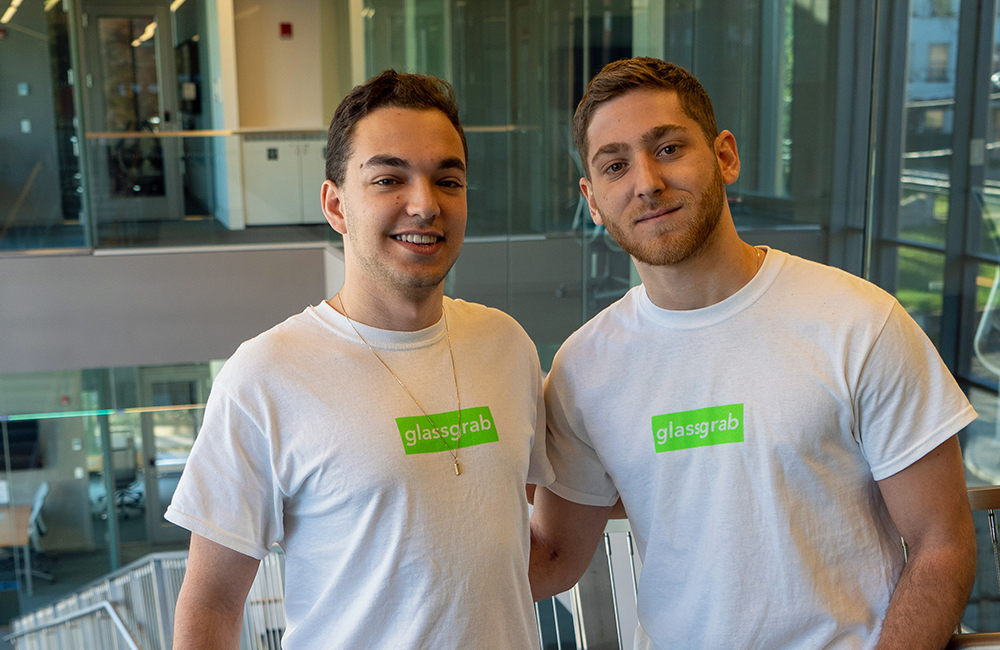The world of glass art is quickly rising in popularity, with the potential to soon become a mainstream collector’s market like that of streetwear or sneakers (think Supreme or Adidas). Having recognized the potential of this growing market Cornell students Gary Perelberg ‘22 and Adam Schur ’21, who share a passion for collecting glass art and entrepreneurship, jumped at the opportunity to join eLab, Cornell’s popular student startup accelerator.
Prior to joining eLab’s 2020 cohort, Perelberg and Schur founded GlassGrab, which is currently one of the first and largest online marketplaces where glass artists and customers can connect securely. Using the GlassGrab app, sellers can post their glass pieces, such as pipes and pendants, for sale online without worrying about lugging their precious artwork from city to city to crowded in-person trade shows. GlassGrab also offers an exclusive perk for users: specialized “drops” featuring exclusive artwork by renowned artists in the glassblowing community.
Backed by the dedicated training and guidance of eLab’s mentors and instructors, Perelberg and Schur were able to continue scaling up their startup and launch the GlassGrab on the App Store in 2019. Since then, the app’s popularity has grown immensely. However, it wasn’t always easy for the new founders to navigate the startup world, especially in the company’s early stage.
“I didn’t have much experience pitching [our business] to a lot of people at first,” said Schur. “So the advisory board meetings we did through eLab were probably the most valuable thing for us. We learned how we should be presenting ourselves to investors, but also how we should be working within our company itself, which was key.”
As GlassGrab continued to grow, the pair turned to eLab’s numerous mentors—in particular, Nathan Cook, SC Johnson College of Business visiting lecturer and Cornell Entrepreneur in Residence—and other program resources for information and guidance as they scaled their startup. One of the biggest lessons they learned was the importance of goal setting.
“To have measurable points to look at, real goals to see if we could hit or not, became huge for us to succeed,” said Perelberg. “Once we started achieving these benchmarks, we really started moving forward.”
In addition to support from eLab’s teaching team, Perelberg recalls GlassGrab’s time spent with a supportive community of fellow student entrepreneurs as a pivotal learning experience.
“Seeing other people pitch and work through their ideas helped us learn what the process was like,” he said. “We could see people using some process or methodology that we could use at GlassGrab and so we learned a lot just from seeing how other people were running their own companies.”
GlassGrab has found its stride in the past few months. Since completing eLab in April 2020, their app has accumulated over 27,000 active users and connected glass artists to customers all over the world. GlassGrab now facilitates millions of dollars in sales, and professional glass artists are regularly signing exclusive deals with the startup to produce limited-edition pieces available through the GlassGrab app only. The company’s social media presence is another testament to its success—GlassGrab has over 34,000 followers on Instagram.
From their humble Cornell beginnings to the successful startup it is now, it’s clear that GlassGrab is thriving in the glass art world: “We’re accelerating a lot faster now than we were before,” said Schur. To learn more about GlassGrab, and the artists, brands, and companies their platform supports, visit www.glassgrab.com.

